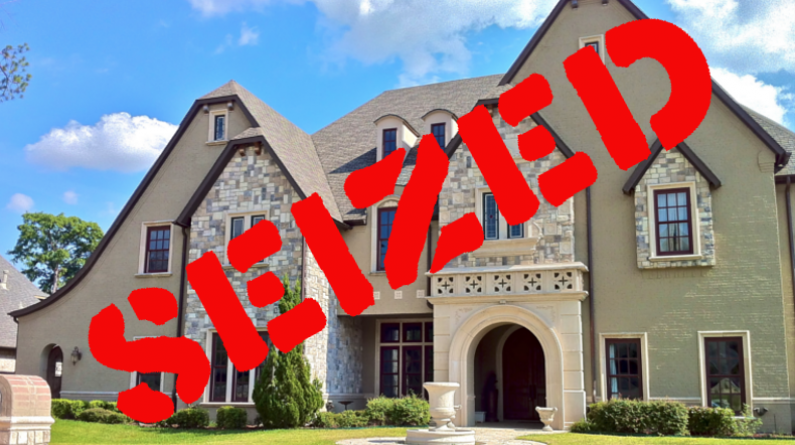Legal theft? B.C.’s Civil Forfeiture Act
Jon Singh | B.A., B.Ed., J.D.| Peter A. Allard School of Law| University of British Columbia
Mike Jones | B.A., J.D.| Peter A. Allard School of Law| University of British Columbia
Double jeopardy. Not the second round of a game show – the legal term. It’s the principle which stops repeated attempts by the government to prosecute you for the same charge, familiar to those who watch Law & Order.
There are obvious reasons for this simple and powerful rule. It ensures that a judge’s ruling is final, builds public confidence in their decisions, and it is fair. If you have faced your charges in court and been found not guilty then that should be the end of the story, right?
It is not.
B.C.’s Civil Forfeiture Act lets the government seize your property if it is related to any unlawful activities you likely engaged in. What does this mean?
Normally, the police investigate a crime and arrest the suspect. The Crown Attorney then decides whether to lay a ‘charge’ and bring the suspect to trial. The person can then either admit their guilt or go to the trial where the Crown will have to prove their case. The person is sentenced if convicted.
Civil Forfeiture is completely separate from this process.
First, a conviction or a guilty plea is not necessary. You do not even need to be charged or arrested for a crime. The Act lets the Civil Forfeiture Office seize your assets if its Director convinces the court that you did something illegal. They need to show the court that the property was either purchased with money from a crime or that the property was used to commit a crime. If they think your car was used to deliver drugs you can lose it. If they think your mortgage is being paid for with drug money, then you can lose your house. You could conceivably lose your most valuable possessions without ever having a trial.
Less to Prove
When the Director applies to the court to take your property they will need to convince the judge that it should be seized.
Criminal trials are decided on the “beyond a reasonable doubt” standard. The judge or jury must be almost absolutely certain that the person is guilty. This is the reason why the Crown sometimes declines to lay charges: they just don’t have the evidence to meet this high standard.
Civil Forfeiture trials are not criminal trials. They are ‘civil’ trials where the judge makes a decision on a “balance of probabilities” standard. They simply decide which side’s story is more likely. This is much easier to meet than the “beyond a reasonable doubt” standard. It’s why O.J. Simpson won his criminal trial but lost the civil one.
See the issue with this lower standard?
If the police cannot gather the evidence for a charge, you can still pay a price—literally. It’s a back-door route to punishing you even though the government cannot meet the criminal standard. You are denied the protections of the “beyond a reasonable doubt” standard.
The Cost of Fighting
So it is your day in court. You have a chance to convince the judge that your property should not be taken. But there is a problem.
What if the Civil Forfeiture Office thinks your house is connected with a crime? You have been paying your mortgage for years and invested thousands into the home. You will fight to keep it. A competent lawyer will help, but at a price.
Say the government is coming after the $250,000 equity in your house. Your legal fees could be $50,000. Lose and you are out $300,000. The stakes are high.
The government can offer you a deal: pay $40,000 and they will drop the application. Nothing has been proven in court yet. You need to decide. Do you pay the legal fees for a trial and risk a devastating loss or accept the settlement? You will still pay something to the Office regardless of your choice. This is how the Civil Forfeiture Office’s actions can seem like extortion.
When the legislature in Victoria debated the Civil Forfeiture Act some M.L.A.’s wondered if the law would allow the Office to seize property without going through the courts. They were told that the Act does not allow it.
Until the law changed.
The Director can now serve a notice— if the property is worth $75,000 or less— to someone directly. It will only reach the courts if it’s challenged. This is meant to encourage settlements in order to save on legal fees, but it’s also an invitation to a massive fishing expedition. The Director can serve you with a notice hoping that you will take a deal. If you refuse, the Office can drop the case before the trial. The hope is you will negotiate a settlement rather than hire a lawyer.
What’s Next?
The Act was passed for two main reasons: to target organized crime and raise money for law enforcement. Organized crime plagues B.C. and its treasury. A chance to recover some of these funds is likely welcomed by taxpayers.
The Act targets anyone in practice however. Mumtaz Ladha faced a forfeiture action on her West Vancouver mansion before judgment on her trial for human trafficking was given. She was forced to sell her home to pay for her legal fees. She is now suing the Office. Robert Murray’s home faced two forfeiture applications based on evidence gathered from a warrant-less search. The government offered him a deal where he could keep 20% of the price of his house if he did not challenge the forfeiture application. They threatened him with high legal costs if he did. He did challenge it and they dropped the application, but he lost his house to pay for the fees.
Ms. Ladha was acquitted of her charges. Mr. Murray was protected from the illegal search by the Charter. Neither were safe from this Act.
The Act’s overreach may be coming to an end. The B.C courts are about to give some clarity on its legality, and the challenge comes from an unusual source: the Hells Angels. They launched a case against the Office after some of their club houses were seized. They claim that the Act violates their Charter rights. This challenge will provide important guidance from our courts on how and against whom the Act can be used.
Until then, the Office marches on.

